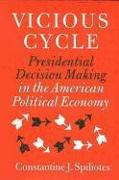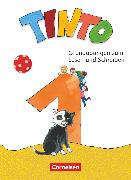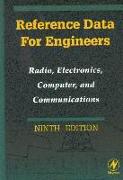- Start
- Vicious Cycle
Vicious Cycle
Angebote / Angebote:
American presidents enter office ready to enact a policy-making agenda that will satisfy partisan interests and facilitate reelection to a second term. Economic circumstances, however, may catch presidents in a vicious cycle of economic growth and inflation versus recession and unemployment. Faced with responsibility for the nation's economic health, presidents are often forced to make tradeoffs between pursuing political objectives and stabilizing the economy.Vicious Cycle provides a theoretical framework for explaining how presidents pursue partisan and electoral objectives in office while simultaneously managing the nation's economy.With an approach that bridges several literatures in presidential studies and political economy, Constantine J. Spiliotes develops an econometric model of postwar presidential decision making in the American political economy and examines its relationship to economic decision making in four presidencies. These extensively documented case studies -- of presidents Eisenhower, Johnson, Carter, and Reagan -- offer variation across several analytic dimensions: temporal, partisan, electoral, and institutional.Spiliotes concludes that tradeoffs between political objectives and institutional responsibility are driven by a transformation in the nature of the American presidency, from an office in which decision making is anchored in partisan accountability to one constrained by the chief executive's institutional mission.Spiliotes's work contributes to a fuller understanding of the presidency and political economy and the methodologies that elucidate them.
Folgt in ca. 15 Arbeitstagen




